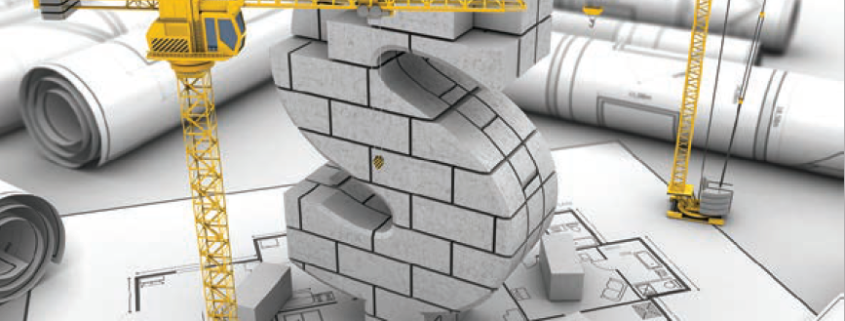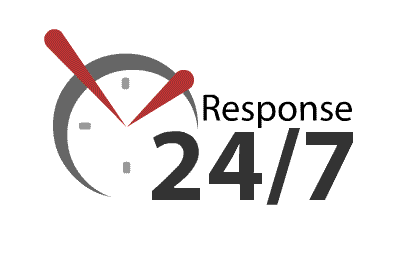When building a new building or making big changes to an old one, the costs can add up quickly. Commercial construction loans can be a lifeline for businesses that don’t have the cash on hand to build. These loans give businesses access to large amounts of money and flexible ways to pay it back, so they can finish their projects without going bankrupt. But with a lot of money comes a lot of responsibility. There are also risks and problems that come with construction commercial loans that businesses must be aware of. In this article, we’ll talk about the pros and cons of commercial construction loans to help you decide if they’re right for your business.
Pros of Commercial Construction Loans
Availability of Large Sums of Money: One of the primary advantages of construction commercial loans is that they provide access to significant sums of money. These loans are made to pay for big projects that might be hard to pay for otherwise.
Ability to Finance Large-Scale Projects: Construction commercial loans allow businesses to finance large-scale projects, such as the construction of a new office building or the renovation of an existing property.
Favorable Interest Rates: Commercial construction loans often have lower interest rates than other types of loans, such as credit cards or personal loans. This can make them cheaper for businesses that want to finance building projects.
Increased Control Over the Project: When you secure a commercial construction loan, you have more control over your project. You can choose the contractor you want to work with, buy the materials you need, and decide how long the project will take and how much it will cost.
Cons of Commercial Construction Loans
High Risk for Lenders: Lenders think of commercial construction loans as high-risk loans because they usually involve large amounts of money with no collateral. This means that before giving you a loan, lenders will carefully look at your credit history and ability to pay back debts.
Strict Qualification Criteria: Because commercial construction loans are high-risk loans, lenders have strict qualification criteria that borrowers must meet. Because of this, it can be hard for some businesses to get the money they need for their projects.
Higher interest rates: Construction commercial loans may have lower interest rates than other types of loans, but they usually have higher interest rates than traditional mortgages or business loans.
Potential for Project Delays and Cost Overruns: Construction projects can be unpredictable, and unexpected delays and cost overruns can occur. This could lead to more costs and a longer time to repay your loan.
Qualification Criteria For Construction Commercial Loans
Getting a commercial construction loan can be hard because most lenders have strict requirements that applicants must meet. To improve your chances of getting a loan, it’s important to know these requirements and prepare for them.
Your credit score is one of the most important things lenders look at when giving out commercial construction loans. Lenders usually want to see a high credit score because it shows that you can handle debt responsibly. You may also need to show that your business is financially stable by giving financial statements and tax returns.
Your business plan and project proposal will also be looked at by lenders, along with your credit score. This includes determining if your project is possible and if you can repay the loan. The property is built, or other corporate assets often secure the loan.
Lenders will look at the project team’s experience and track record. This includes the project’s general contractor, architect, and other key players. Lenders will want to ensure the team has the skills and experience to finish the project on time and on budget.
Achieving these conditions is difficult, but lenders take a considerable risk when funding large building projects. Showing financial stability, project feasibility, and experience can help you acquire commercial construction financing.
Types of Commercial Construction Loans
There are different kinds of construction commercial loans for businesses that want to pay for big building projects. Here are three of the most common:
- Interim Construction Loans: These loans cover construction costs until completion. Most of the time, they are short-term loans with higher interest rates than mortgages. Once the project is done, the loan is usually turned into a mortgage with a longer term.
- Mini-Perm Loans: These loans are similar to interim construction loans but have a longer repayment period. They can be used to pay for construction costs and keep the project going during its first few months of operation. Most of the time, the interest rates on mini-permanent loans are lower than those on interim construction loans.
- Takeout Loans: Once the project is done, these loans are used to pay off interim construction loans. They can help businesses get longer terms for paying back loans or lower interest rates. Most takeout loans are long-term mortgages with lower interest rates than construction loans.
Each kind of commercial construction loan comes with its own set of pros and cons. When choosing a loan, consider your business needs and each loan’s requirements. This ensures you secure the greatest building project funding.
Tips for Managing a Commercial Construction Loan
Taking care of a commercial construction loan can be hard, but if you do it correctly, you can do it well. Here are some ways to handle a loan for commercial construction:
- Understand the terms of the loan: Before you start the construction project, make sure you understand the terms and conditions of the loan. Know the interest rate, when you have to pay back the loan, and if there are any fees.
- Make a realistic budget: To manage a commercial construction loan, you must make a realistic budget. Make sure you know everything there is to know about the project’s costs and make a detailed budget that includes everything.
- Monitor the construction project: Keep a close eye on it to ensure it stays on track and within budget. Talk to the construction team often so you know how things are going and can spot any problems that might come up.
- Have a contingency plan: Construction projects are often unpredictable, and unexpected issues can arise. Have a plan in place if you run into unexpected costs or delays.
- Stay in touch with your lender: Talk to your lender regularly while the building project continues. Notify them of any modifications or issues and make loan payments on schedule.
Using these tips, you can handle a commercial construction loan well and make sure your building project goes well.
Conclusion
Construction commercial loans can give businesses access to money and flexible ways to pay it back, but they also come with risks and challenges. Before deciding if a commercial construction loan is right for your business, consider the pros and cons carefully and determine what your project needs. If you are well-prepared and know how the lending process works, you can get the money you need for your construction project and reach your business goals.
Direct Commercial Funding is your trusted partner in securing commercial construction loans. We offer flexible financing options tailored to your unique needs, with competitive interest rates and terms that fit your budget. Our team of experts is committed to providing exceptional service and support throughout the loan process, from application to disbursement. We understand the challenges of managing a construction project and are dedicated to helping you achieve your goals. Whether you’re a real estate developer, builder, or business owner, we have the expertise and resources to help you secure the funding you need to complete your project successfully. Contact us today to learn more about our construction commercial loans and how we can help your business grow.










Leave a Reply
Want to join the discussion?Feel free to contribute!